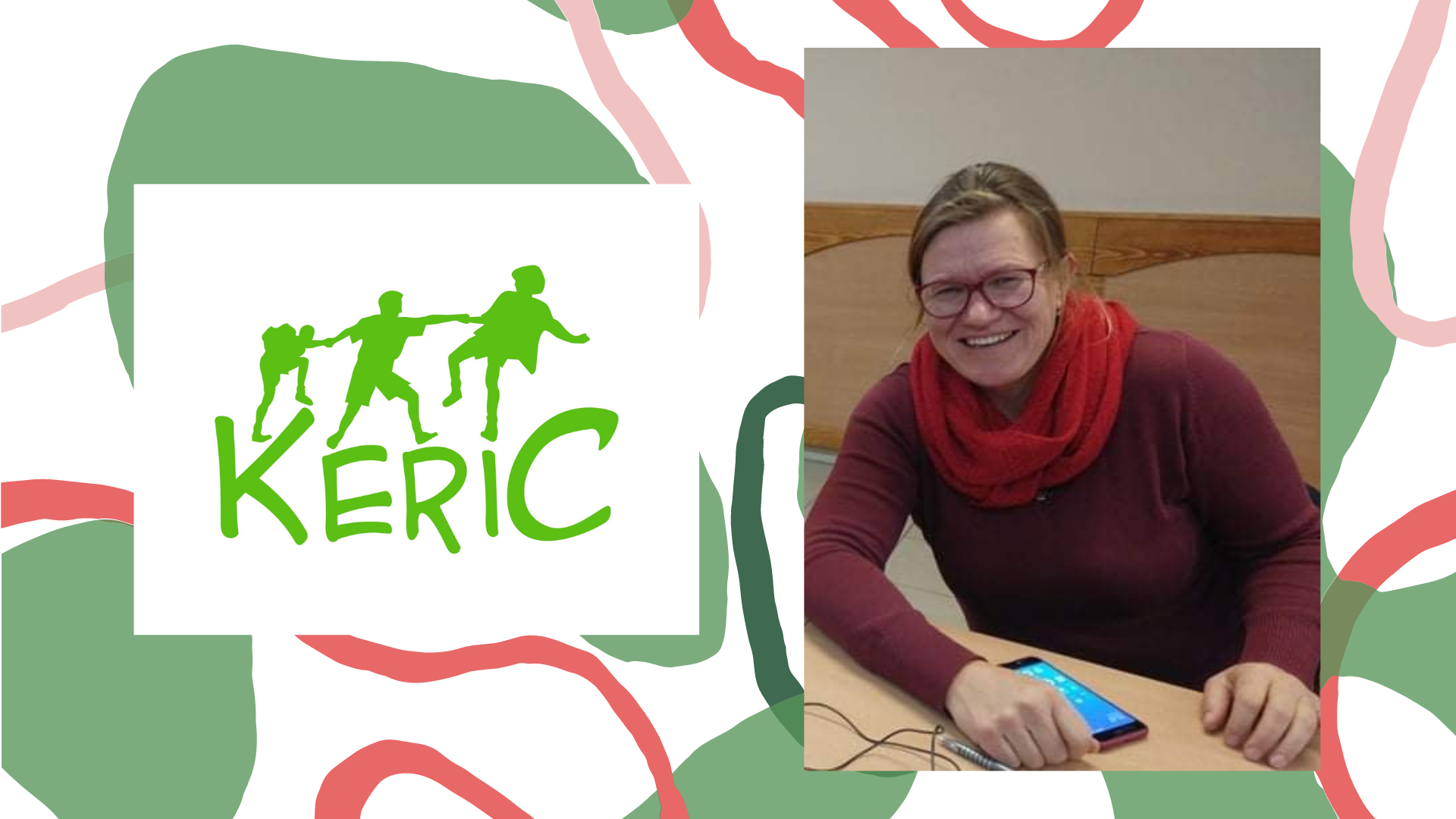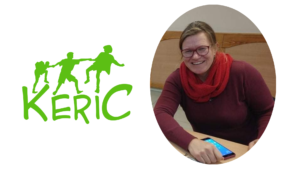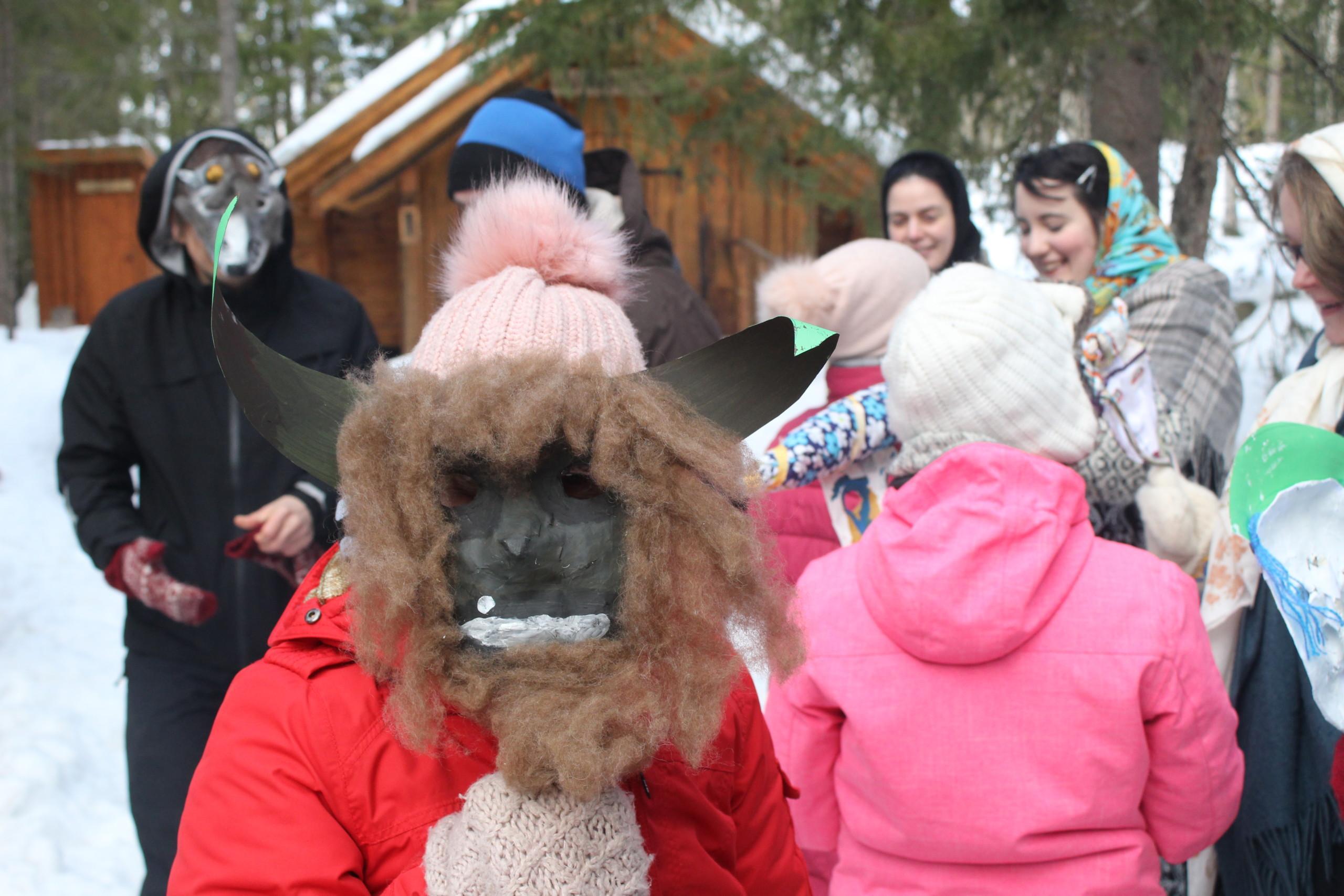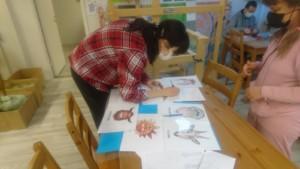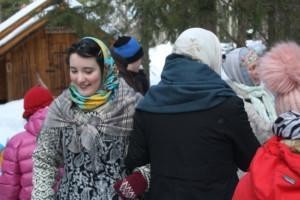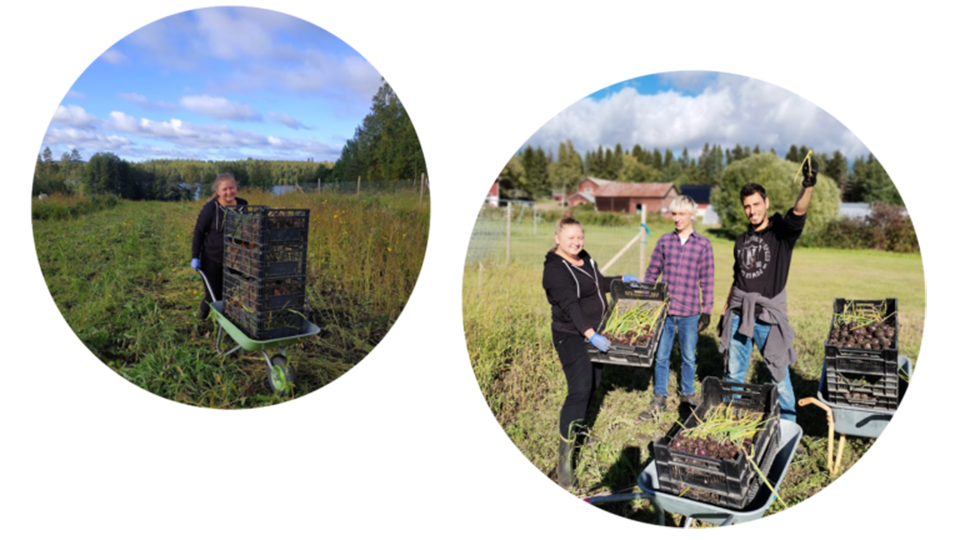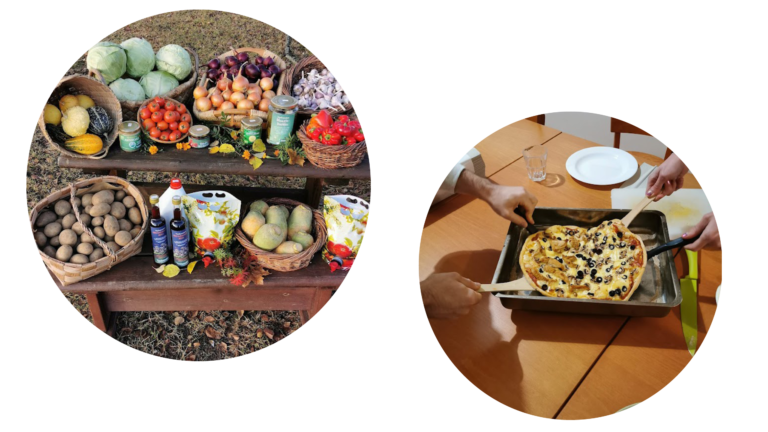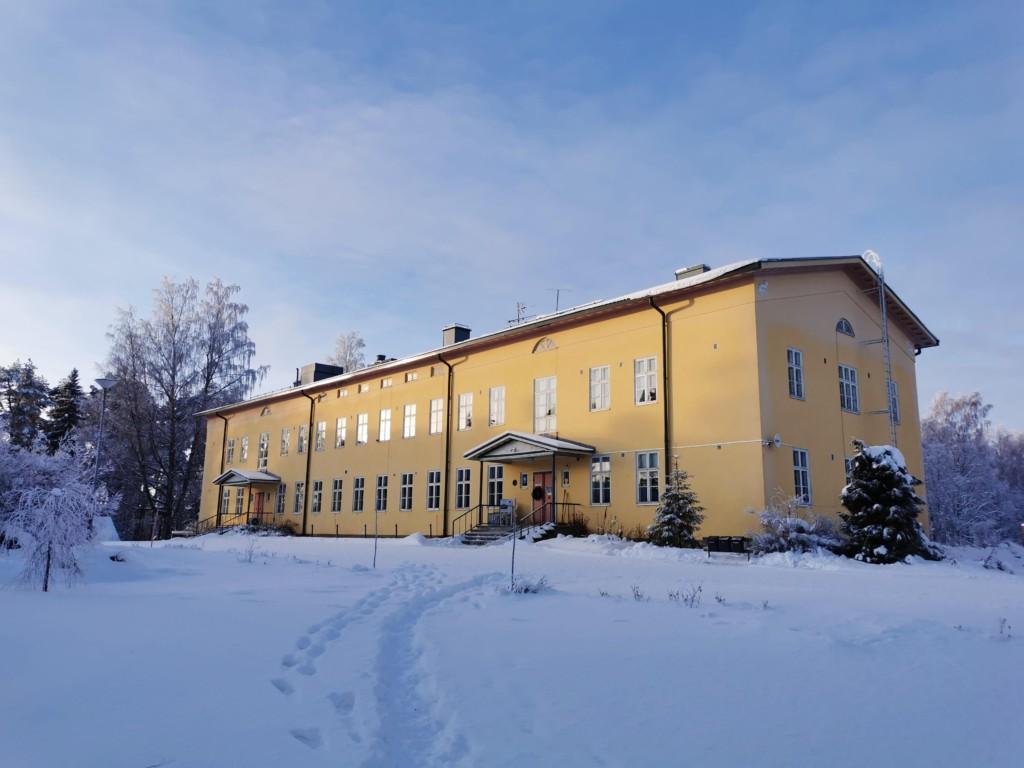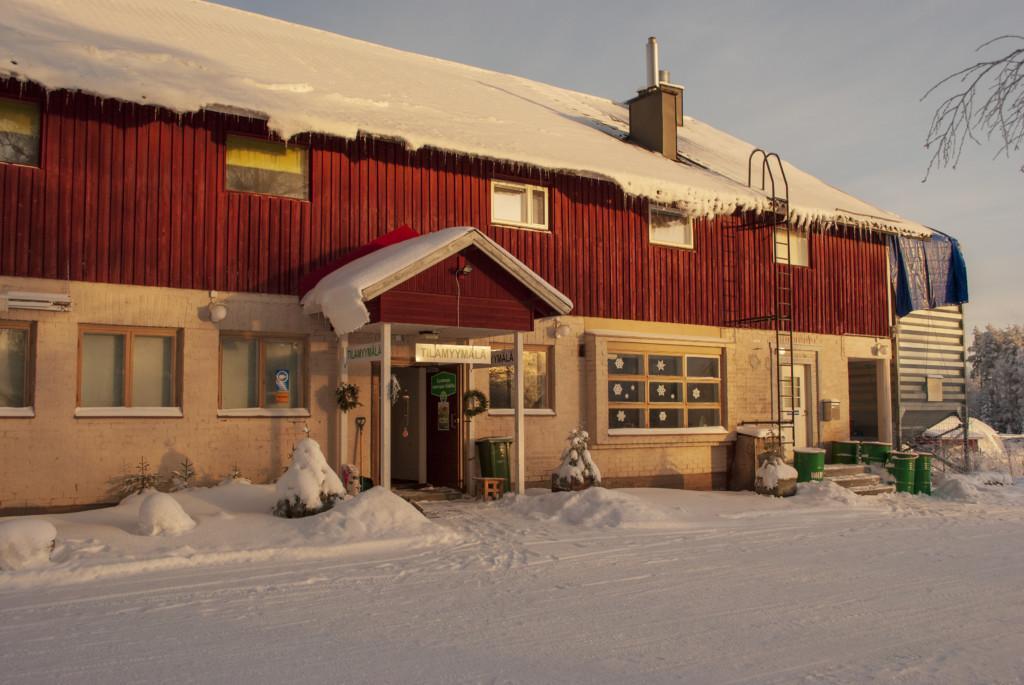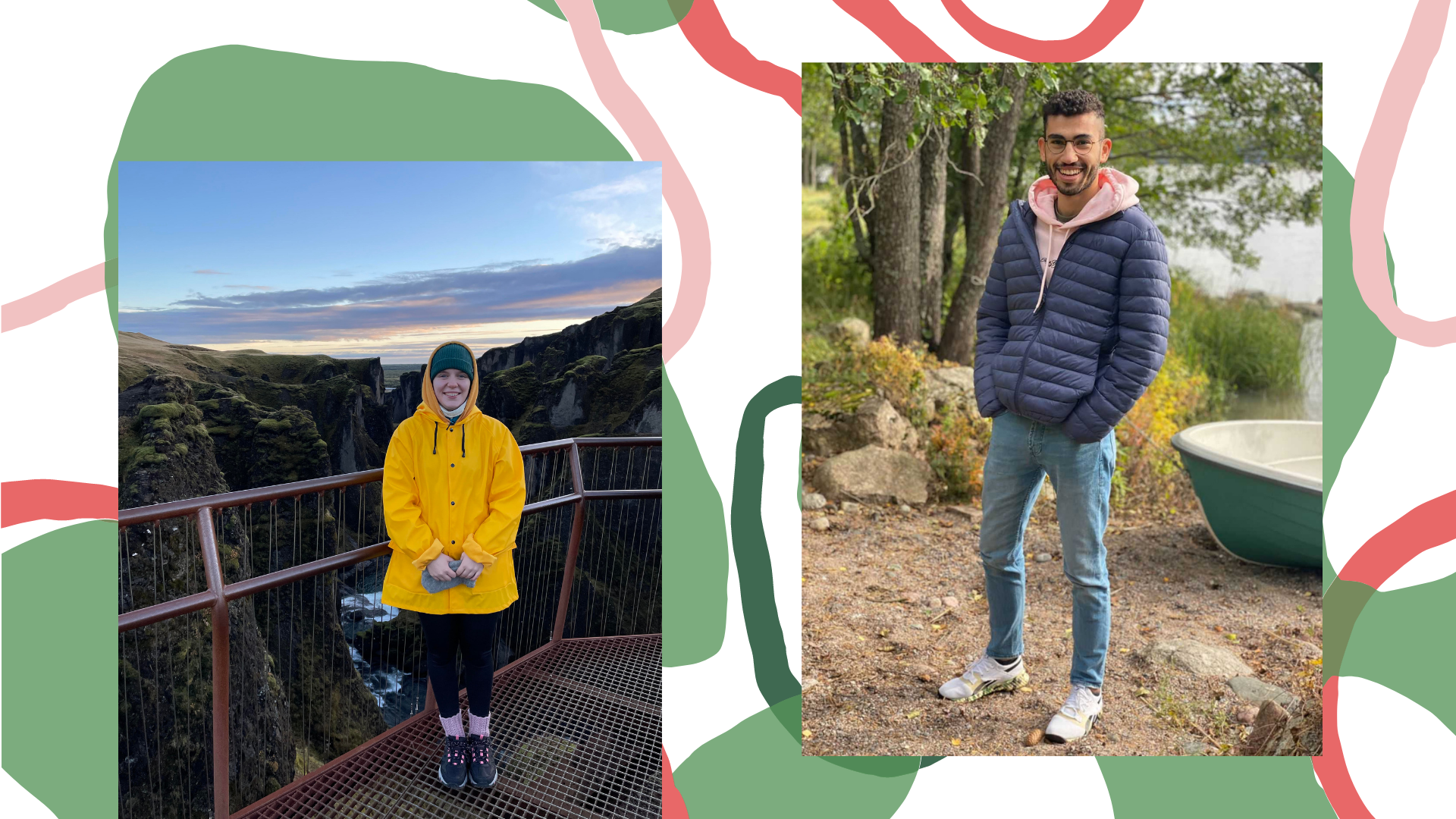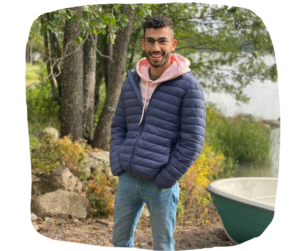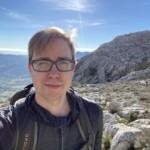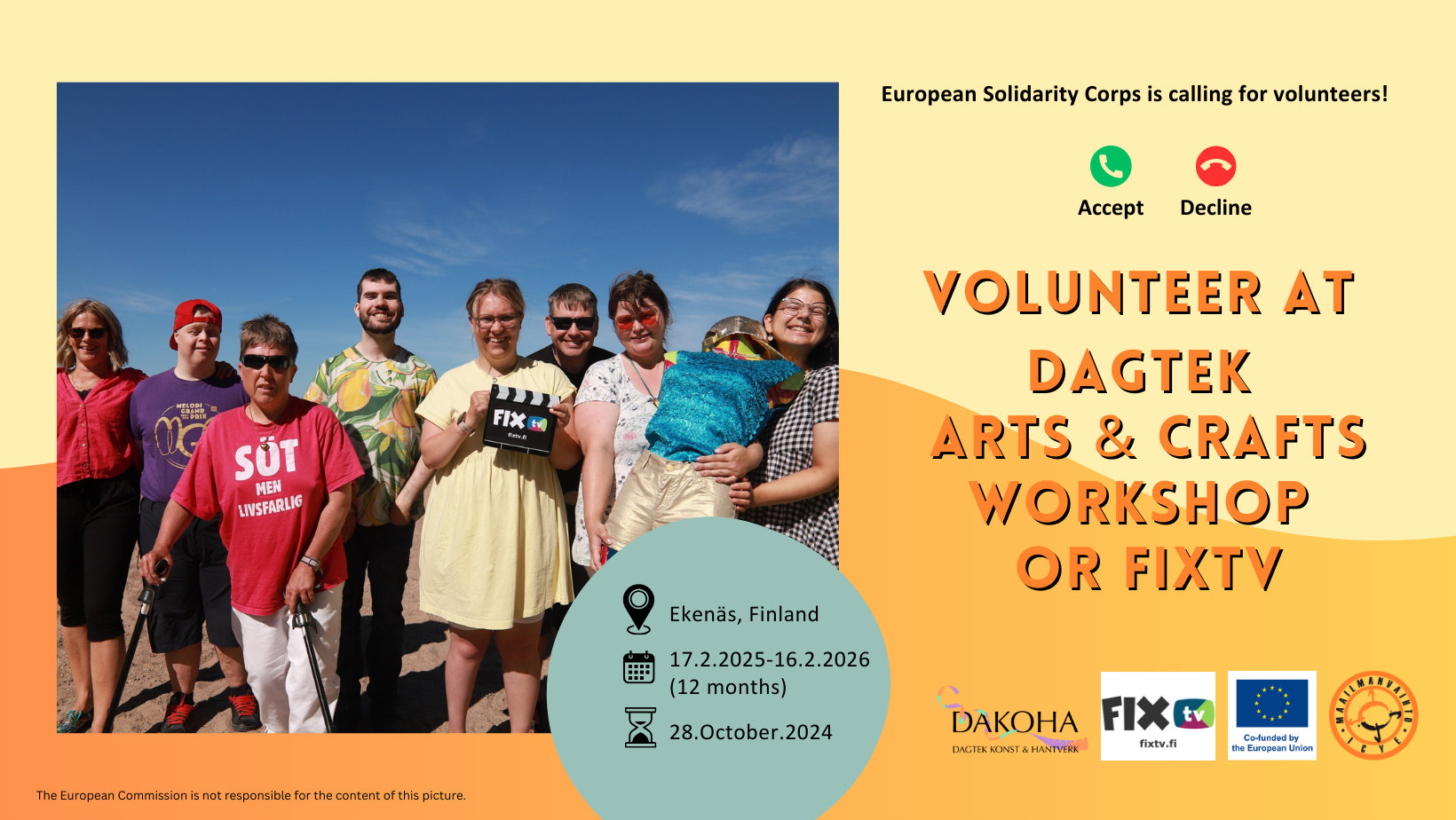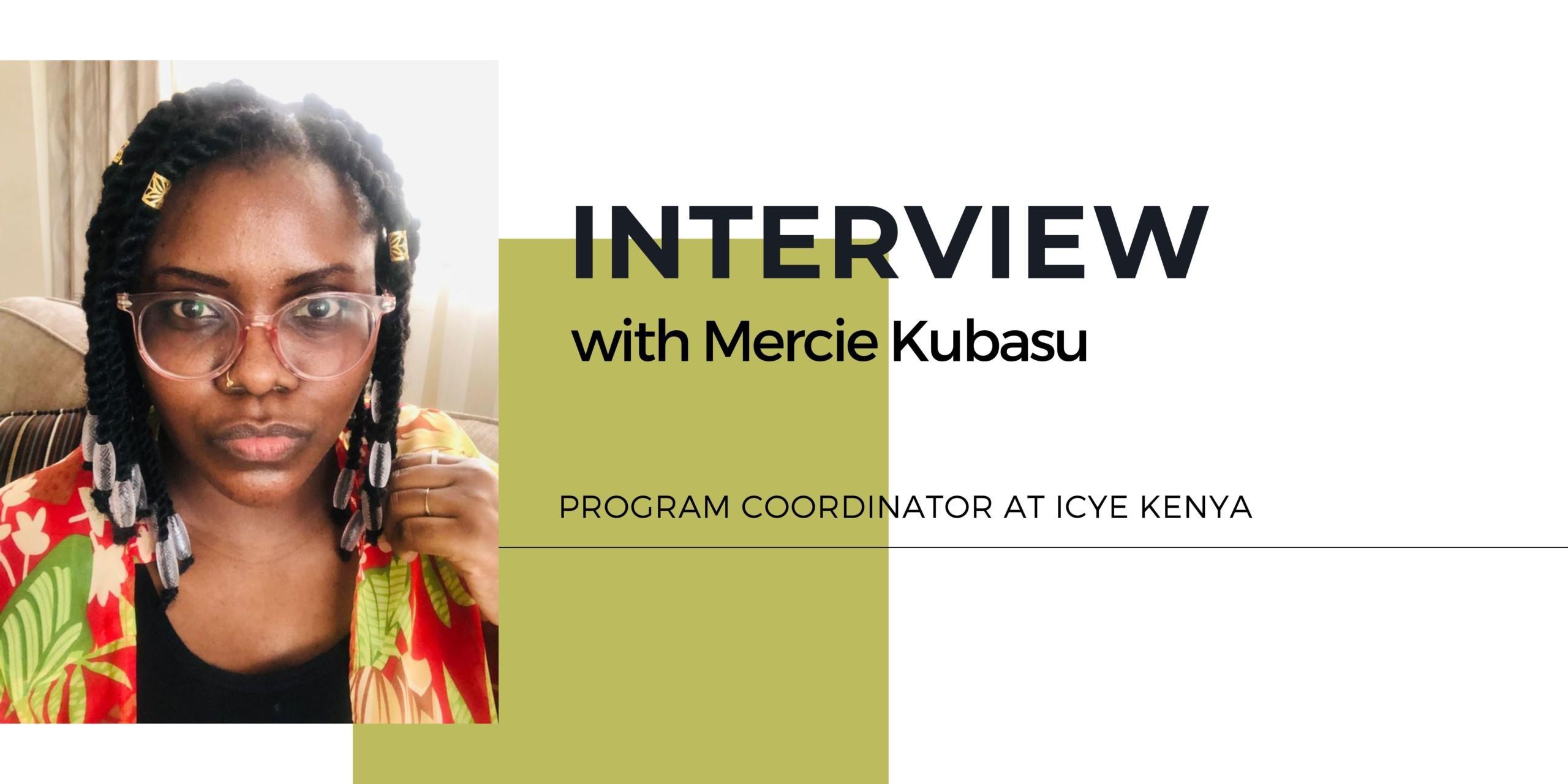DAGTEK SERVICEENHET offers services for people with intellectual disabilities or autistic spectrum disorders as a part of Western Uusimaa wellbeing services county (Västra Nylands välfärdsområde in Swedish). The activities Dagtek offers are divided into several sections in different areas.
Dagtek Art & Crafts workshop
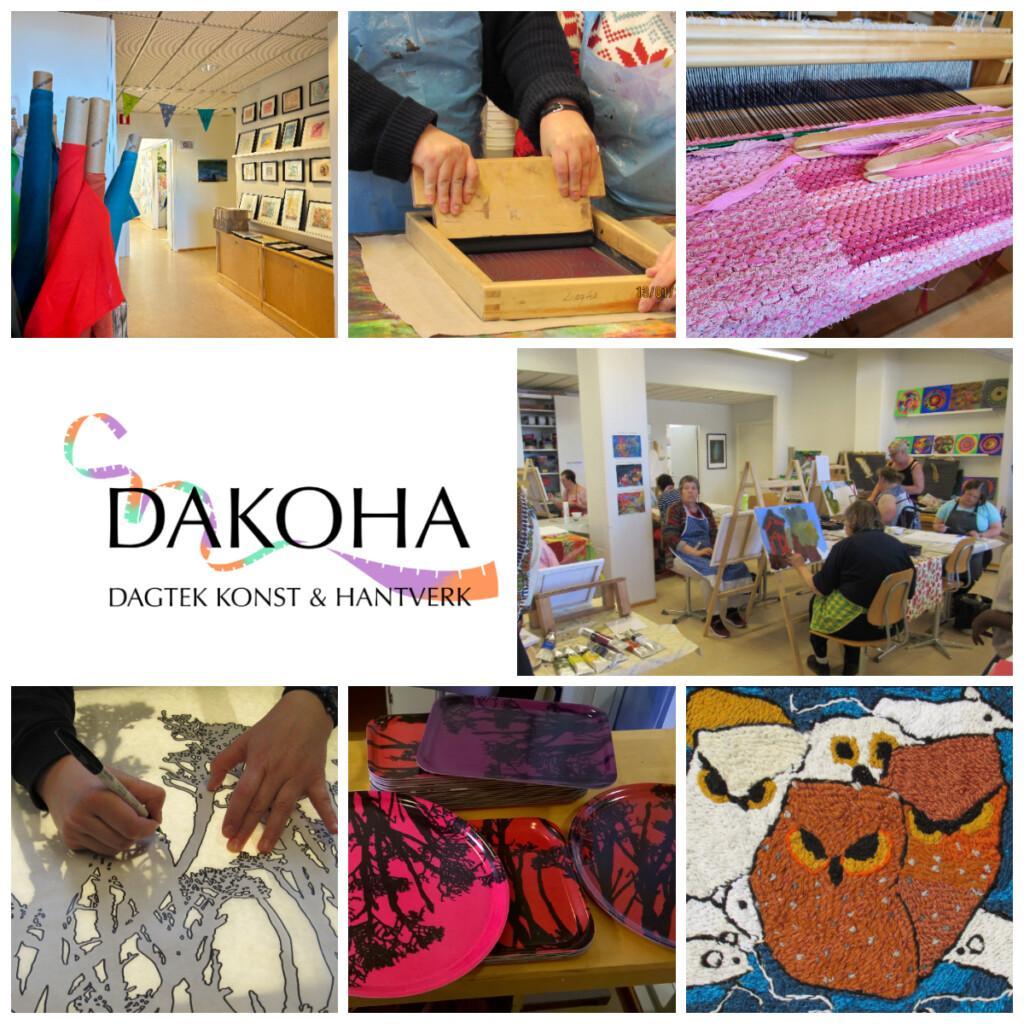
Activities in Art & Crafts workshop includes different kinds of textile handicrafts as weaving, fabric printing, knitting, embroidery, sewing and felting. Many of the 20 participants in this workshop have education or courses in textile handicraft or art.
We want to take advantage of and develop the skills that our participants have through their education and work experience, and we want to profile our activities with professional textile craftsmanship and products with personal design in good quality.
Our participants have the opportunity to choose which products or craft technics they want to work with. Some of them have chosen to focus on a particular textile work or product, while others are happy to switch between different jobs and try new things. A big part of our textile products is made in collective processes where it is easy to find individually suitable tasks for everybody. We make for instance rag rugs, kitchen textiles and bags. Our products are sold in our own DAKOHA shop and we also collaborate on a small scale with local craftsman collectives.
We want to extend our networks in art & crafts, and we have arranged courses and workshops together with professional artists. In August this year we had a week-long workshop with art graphics. Now and then we go on excursions and visit exhibitions in our surroundings.
FIXtv
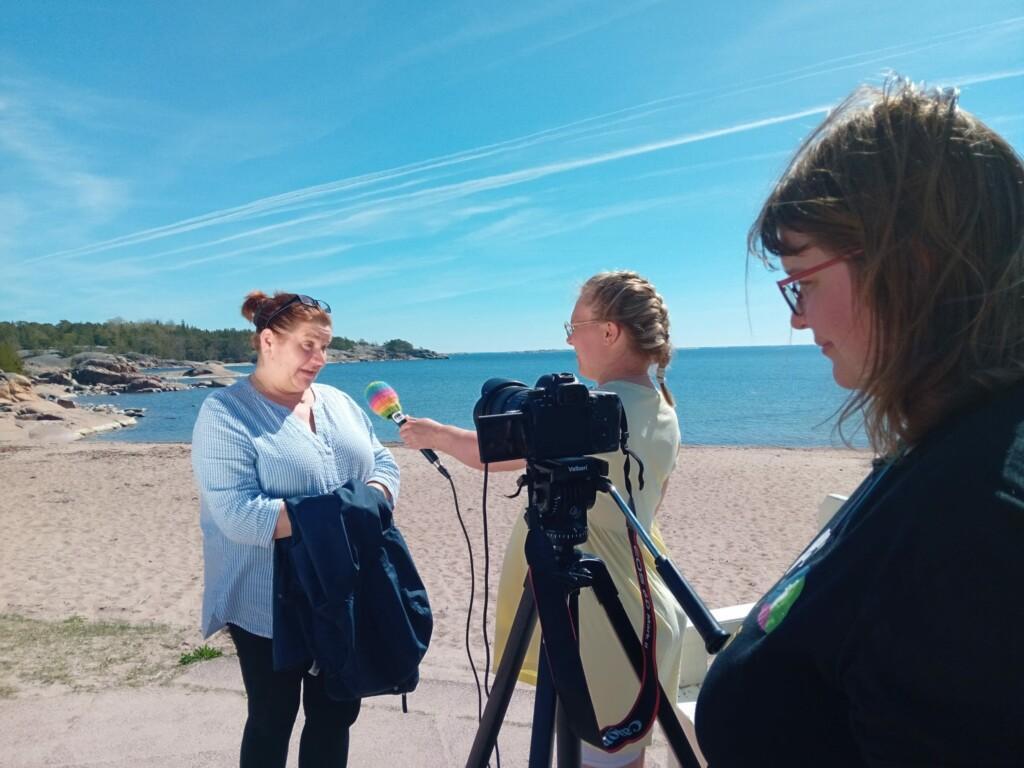
FIXtv is a web-tv channel made by people with intellectual disabilities together with a tutor. The goal is to give people with disabilities positive visibility in society. FIXtv:s programs can be seen on our website, https://fixtv.fi.
Location
Dagtek is located in Ekenäs (Tammisaari in Finnish), which is a small town with about 15 000 inhabitants situated by the sea in Southern Finland. Dagtek is located in the centre of the town. The majority language spoken in Ekenäs is Swedish (81%) and about 17% of the population speaks Finnish. Ekenäs is a part of the Raseborg commune (28 000 inhabitants).
Volunteer’s role and tasks
Volunteers through the European Solidarity Corps program have become an important and highly valued resource in our activities. Through European Solidarity Corps volunteer cooperation, we wish to offer our community members the possibility to build networks and get a wider perspective on the world around us. At the same time, we hope to have one more person to be present for the clients and assist them in the daily workshop activities, as well as in social and practical situations during the day. Our clients have the opportunity to make their own international contacts and practice their English. Volunteers enrich our community by sharing their skills and being a part of our social community.
The volunteer will also write articles for Dagtek’s own Magazine (Dagtek Chronicles). The work with the magazine is done together with the clients and other staff members.
A couple times a year the volunteers will also plan parties for Dagtek. For example, a disco party or a summer party. This will be planned and arranged together with the staff members.
1) In the arts&crafts workshop
The role of the volunteer is to support the clients with special needs in their textile crafts work, art activities, and all kinds of daily activities and social situations. According to their skills and interests, the volunteer can also organize activities and teach the clients new skills in fields that connect to arts & crafts. Despite their learning disabilities or other special needs, many of the clients of Dagtek workshop are quite independent in their daily activities. The role of the staff and volunteer is to coach and guide them in the arts&crafts activities and to support their independence in different everyday situations.
2) In FIXtv
The volunteer’s role at FIXtv is to support and assist the clients in their daily activities. That means mainly everything that has to do with filmmaking. The volunteer will participate in planning, filming, editing and sharing our programs. Having filming and editing skills are of benefit, as is knowledge of using the editing program Premiere Pro or a similar one. One task is also to create content to FIXtv:s social media together with the clients.
The volunteer will also help the clients in their daily activities related to mealtimes, walks outside, as well as helping the clients when they arrive and leave Dagtek.
Volunteer’s profile
We are looking for volunteers interested in working with adults (18–60-year-olds) with different types of intellectual disabilities, autistic disorders, or minor learning challenges. It is important that the volunteer is socially active, flexible, and motivated to participate in community life, meaning being there for the clients and communicating actively with them. It is also important that the volunteer has open communication with the staff team and shares their ideas and observations with them. The working language of Dagtek is Swedish, so it is important to be motivated to learn Swedish. It is also important to be able to tolerate fast-changing situations.
Arts&crafts workshop
At Dagtek’s arts&crafts workshop, it is beneficial to have skills or interest in visual arts, handicrafts, or art in a wider perspective – ceramics or photography for example. Having a volunteer with an interest – and maybe studies – in arts will enrich the community and give the volunteer a genuine possibility to share their skills and experience.
FIXtv
Volunteering at FIXtv is especially suitable for candidates who a have strong interest in filmmaking and at least some skills in it.
Accommodation, food, and transportation
- The volunteers will live in a shared flat of three volunteers.
- Lunch will be offered at Dagtek. Other meals will be cooked by the volunteer and the volunteer will get a food allowance.
Training during the volunteering period
The volunteer will have an on-arrival training camp and mid-term evaluation camp organised by the Finnish National Agency of the European Solidarity Corps.
The volunteer will get access to the Online Language Support (OLS) tool of the European Solidarity Corps to support learning Swedish.
Accessibility
The physical environment of Dagtek is also suitable for people with physical or (minor) sensory disabilities, depending on the special needs of the person. Wheelchair access is possible and there is an accessible toilet in the building. Since Dagtek works with people with different disabilities, our staff has experience in providing extra support and can sometimes support the volunteer, if needed. However, there are no resources to provide continuous intensive support for the volunteer. If you have a disability, please, feel welcome to contact us for consultation via the coordinating organization Maailmanvaihto: esc@maailmanvaihto.fi.
Themes
Creativity and culture, disabilities – special needs, inclusion – equality, health, and wellbeing
How to apply?
No open positions currently. Please, check again later.
Further information
- If you wish to ask something about the open position for volunteering at Dagtek, please, see answers to frequently asked questions and European Solidarity Corps program page.
- If you don’t find an answer to your question, please contact us at Maailmanvaihto at esc@maailmanvaihto.fi. (Do not contact the voluntary workplace directly.)
- Please note that you can only apply for the open position through Maailmanvaihto – ICYE Finland by following the application instructions linked above. (You cannot apply directly through the voluntary workplace.)
Volunteers’ experiences
Eylül – Dagtek Arts & Crafts
“My time volunteering at Dagtek Art and Crafts has been both educational and inspiring for me. Working with individuals with special needs provided me the opportunity to support their daily lives through art and crafts, as well as through tasks that maintain daily flow. During this process, I not only improved my manual skills but also my empathy and communication abilities.
The fact that the participants in the workshop work independently helped me enhance my social interactions with them. Each individual’s ability to specialize in their areas of interest allowed me to learn many things from them as well. The workshop space is diverse and expansive. It’s motivating to see different crafts being created at various points within the venue. It’s also pleasing that the products we create together are not just physical objects, but tools that boost the participants’ self-confidence. Communicating with participants while working on the same craft individually is really important. People are very kind and love to communicate with you. Over time, their increasing openness to communicate with me has also developed my communication skills and has been a source of motivation for many things.
There are daily tasks for coffee and meal breaks as well. Having these tasks on a regular schedule makes the day dynamic. The working environment is systematic and organized, which has greatly helped me adapt to it. A fun fact: Finland has a culture of name days. People enjoy celebrating the day of their names. We are quite disciplined about these celebrations, and that is very precious. Throughout the year, there are different celebrations, such as celebrating the arrival of summer or anniversaries. This serves as a significant source of motivation for all staff and participants. Planning and assisting with these celebrations together has been a lot of fun for me.
In conclusion, volunteering at Dagtek has shown me the importance of social responsibility, individual communication, and unlocking individuals’ potential. This experience has also been an opportunity for me to learn. I knew I would learn many things, but I never anticipated learning so many new techniques and insights. I am truly working with very professional people. If you want to make a social impact using art and crafts, it’s truly an ideal place.”
Eylül Akyol
Marlène – Dagtek FIXtv
“Hi everyone! 🙂 My name is Marlène and I am currently volunteering in FIXtv. I am working with a team of 6 people and a tutor.
Here, the main activities are Filmmaking related; it can be script writing, video shooting or editing for example. We are making different types of video projects, such as interviews, shorts movies or report videos for example. My main tasks are to support the team and bring my Filmmaker knowledge and experience to them. Sometimes I also provide them with editing workshops. Besides the Filmmaking activities, I am also part of the daily life moments. This means helping preparing the lunch, the coffee, or going out for a walk with everyone for example.
FiXtv is a very friendly and cheerful place, where you will feel immediately welcome. I really love volunteering here because every day is new and exciting, and because everyone is very kind and friendly with me. I am learning a lot there, socially, and artistically speaking. I also love the work/fun balance there. Even if we are really involved about our Filmmaking work, we always take time to relax and have fun with each other, which I believe is very healthy.
Join the FIXtv adventure and I promise you will have a rewarding, unforgettable and amazing experience!”
Lisa – Dagtek
“Hi everyone:) I’m Lisa and I was a volunteer (2023) here at Dagtek. Here we work with people with intellectual disabilities and we mostly engage in art workshops and organise daily activities for them. I love this job because it gives me the possibility to improve myself and learn a lot everyday from my colleagues and from the clients of the centre. It’s a place where everybody is respected and treated equally. From the very beginning they made me feel important and valued and they encouraged me to be an active part of the workplace giving me also the opportunity to create my very own workshops. If you are thinking about joining the European Solidarity Corps and starting this adventure I can tell you that Dagtek would be a great opportunity for you :)”

